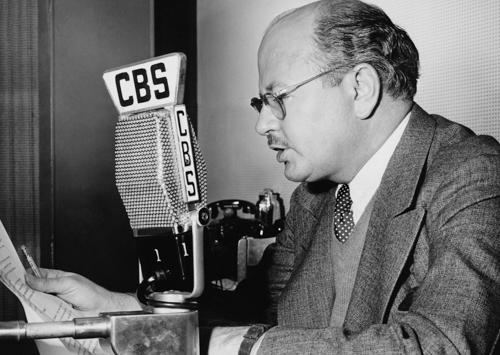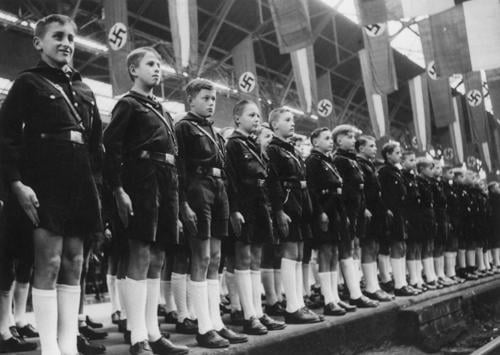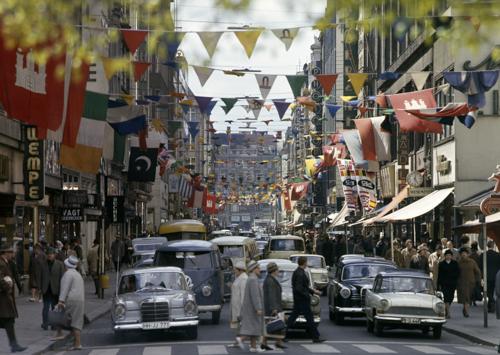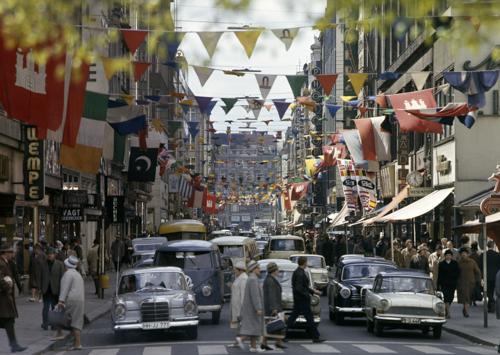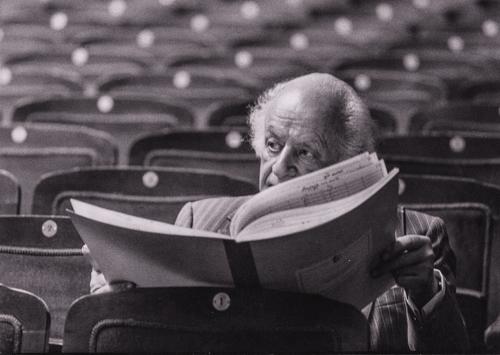Listen to New Voices on Studs Terkel our partnership with 826CHI-here! Read the Story
Showing 1 - 15 of 50 results
-
William L. Shirer discusses his book "The Collapse of the Third Republic"
1970 William L. Shirer discusses his book "The Collapse of the Third Republic". Shirer talks about the fall of the third republic of France. Shirer also discusses World War II Europe.
-
Werner Burkhardt German jazz critic and translator speaks with Studs in Hamburg, Germany.
Mar. 1, 1967 Werner Burkhardt, German music journalist, critic, and translator, discusses his life and work with Studs. Mr Burkhardt speaks about his life during the time of Adolph Hitler, the Hitler Youth, and World War II. They end the interview talking about Jazz in Munich, a recording of "My Man" by Billie Holiday closes the interview.
-
Ursula Bender leads a tour to the Berlin Wall
1986 Content Warning: This conversation has the presence of outdated, biased, offensive language. Rather than remove this content, we present it in the context of twentieth-century social history to acknowledge and learn from its impact and to inspire awareness and discussion. While heading to the Berlin Wall, Ursula Bender points out different landmarks. In addition, once at the Berlin Wall, she reads and translates some of the graffiti left on the wall. Parts of the interview are in German as Bender talks to some German people.
-
Ursula Bender leads a tour to the Berlin Wall
1980 Content Warning: This conversation has the presence of outdated, biased, offensive language. Rather than remove this content, we present it in the context of twentieth-century social history to acknowledge and learn from its impact and to inspire awareness and discussion. While heading to the Berlin Wall, Ursula Bender points out different landmarks. In addition, once at the Berlin Wall, she reads and translates some of the graffiti left on the wall. Parts of the interview are in German as Bender talks to some people.
-
Thomas Keneally discusses the book "Schindler's List"
Nov. 12, 1982 Thomas Keneally discusses the book "Schindler's List," detailing the actions of Oskar Schindler saving Jews during WWII.
-
Terkel comments and presents German Lach und Schiess Gesellschaft (political cabaret)
1967 Terkel comments and presents German Lach und Schiess Gesellschaft (political cabaret). Freilien Margo Schtega is the interpreter for Sammy Drechsel. However, Terkel comments that Sammy understands him 'just fine'.
-
Studs Terkel talks with three World War Two veterans
Apr. 17, 1985 Interviewing Ed Ruff, Joe Polowski, and Leroy; three veterans of the meeting of U.S. and Soviet forces at the Elbe River on April 25, 1945. The result of this meeting was the splitting of Nazi Germany into two parts and the ensuring of victory in Europe.
-
Studs Terkel talks with Erich Lüth on his first hand experiences living in Hamburg through the rise and fall of Hitler ; part 1
1968 Erich Lüth discusses his experiences, observations, and accounts of life in Hamburg, Germany during the rise and fall of Hitler. He recounts how as a member of Parliament he brought in Hitler's, "Mein Kampf" and read portions aloud and was laughed at by his colleagues. He states they were blind to what Hitler declared in his book he would do and some are still blind by wanting to rub out their past, their history.
-
Studs Terkel interviews Friedrich Luft in the home of Dr Erich Heller of Northwestern University
1968 Friedrich Luft, Chief Drama Critic for Die Welt discusses German theater and Bertolt Brecht as well as new playwrights such as Peter Weiss. Unlike American theaters, Germany has over 200 theaters that are subsidized and each town of 50,000 has a theater. Just like the days of The People's Stage (which still exists) the grocer and cobbler of Germany enjoy the theater. They are as devoted to the theater as going to a museum or church. They are treated to 12 to 16 new or old plays from Sophocles to Sartre or Pinter.
-
Studs Terkel continues his interview with Erich Luth in Hamburg discussing the aftermath of the war on Germany's youth ; part 3
1967 There is a silence in the tape from 3:48 to 3:58 due to Studs changing the tape. It should be noted that the word "clever" in this discussion means intelligent. The interview concludes at 35:36 where Studs offers his reflections on his stay. Luth is the retired Press Chief of Hamburg and has also helped with remunerations for the Jewish people in the aftermath of World War II. He has also facilitated detente between Israel and West Germany.
-
Studs Terkel concludes his interview with Erich Lüth going more in depth on the aftermath of the war on Germany's youth ; part 4
1968 Erich Lüth's discussion with Studs Terkel is similar to part 3 but Luth offers a more in-depth conversation on the role of teachers in schools and how the time of Hitler is taught. There were those teachers that joined the party to continue their love of teaching and those teachers that were brought into the Nazi Party to follow their convictions. This lack of courage to resist influences pupils today because teachers are not saying they were cowards. The relationship is altered out of shame, and embarrassment.
-
Sir Georg Solti talks with Studs Terkel
Feb. 1, 1995 Studs engages the former Chicago Symphony Orchestra conductor, Sir Georg Solti, in a wide-ranging conversation about his life and career. From his early studies in Budapest with Béla Bartók, his string of good-luck opportunities before, during, and after World War II, meeting Toscanini in Lucerne, and starting on top conducting in Frankfurt, London, and finally Chicago. He discusses his many German and European musical influences and contemporaries, and stresses the importance of education, arts funding, and hard work.
-
Sam Pilafian and Gerhard Meinl discuss the tuba
Aug. 30, 1991 While in town for the Chicago Jazz Festival, Sam Pilafian and Gerhard Meinl discuss the history of the tuba. With demonstrations on the tuba, they play scales and other short pieces. Gerhard Meinl's family business of making instruments like the tuba has been around since 1810, explained Meinl.
-
Rolf Liebermann discusses the Hamburg State Opera and describes their operation and performances
1967 Studs interviews Rolf Liebermann, director and composer, at the Hamburische Staatsoper in Hamburg, Germany. Liebermann explains some history of previous directors and performances. Many artists and operas are mentioned, but only a few were focused on in detail. Liebermann explains details about the operation of the opera highlighting the budget and the functions of the opera house. The recording stops short toward the end of the interview.
-
Nicola Geiger discusses her background and her time spent in the far east
Oct. 21, 1974 Born in Hamburg, Nicola Geiger, recalls her upbringing and her life under Nazi Germany. She lost two children in World War II. Later in life, she worked in both Japan and Korea. Geiger knew that she alone could not change the world but that she worked tirelessly to get other people to work on peace, too.


